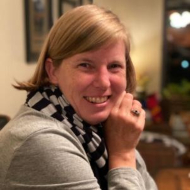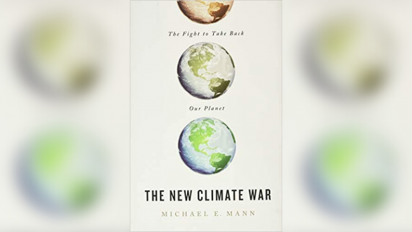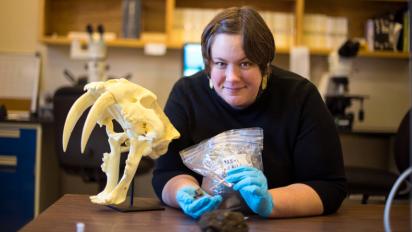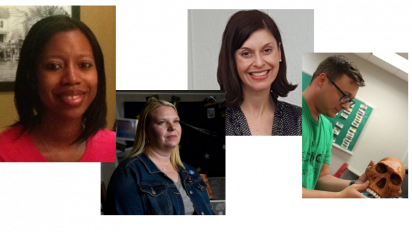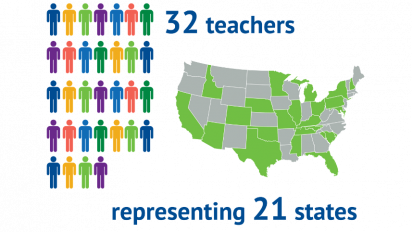NCSE launches curriculum study to investigate efficacy of lessons
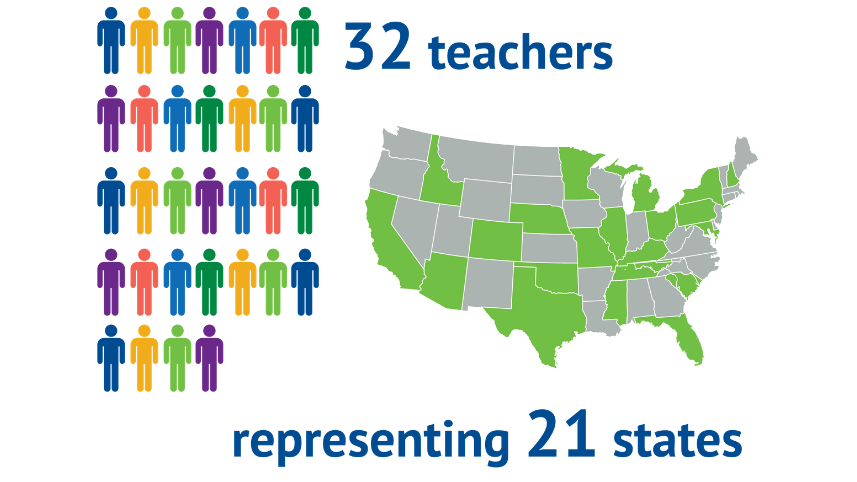
How do scientists respond to new evidence that challenges existing beliefs?
How can the past help us predict and prepare for a future affected by climate change?
How do natural processes create and shape the unity and diversity of life on Earth?
These are the big questions that underlie NCSE’s new nature of science, climate change, and evolution lesson sets. To test the efficacy of these middle and high school lessons, and to gain valuable feedback on how best to revise them, NCSE is launching a two-year curriculum study starting in July 2021. In the meantime, the curriculum will be publicly available for any teacher to use at the Supporting Teachers section of the NCSE website.
At the heart of the curriculum study is a cohort of 32 teachers from across the U.S. who will be mentored by NCSE staff and NCSE teacher ambassadors (see “NCSE Teacher Ambassadors Take on a New Challenge: Mentorship”). The cohort will receive virtual professional development in the summer of 2021 to help them to understand the content and implement the lessons, and to prepare them to address student misconceptions about the three topic areas. During the 2021–2022 school year, the cohort will field-test the lessons by teaching some or all of them in their classrooms. They will provide feedback on their experiences and ideas for improvement. Additionally, they will be collecting data from their students to look for changes in knowledge and attitudes. NCSE will use the data from teachers and students to evaluate the effectiveness of the curriculum and modify individual lessons accordingly.
“NCSE teacher ambassadors identified the misconceptions targeted in these new lesson sets,” explains NCSE Director of Teacher Support Lin Andrews. “These misconceptions were seen as the main sources of contention our master teachers had to tackle every year. The knowledge gained from this study will allow us to fine-tune the lesson sets to ensure that teachers can effectively use them to dispel their students’ misconceptions about these vital topics in science.”
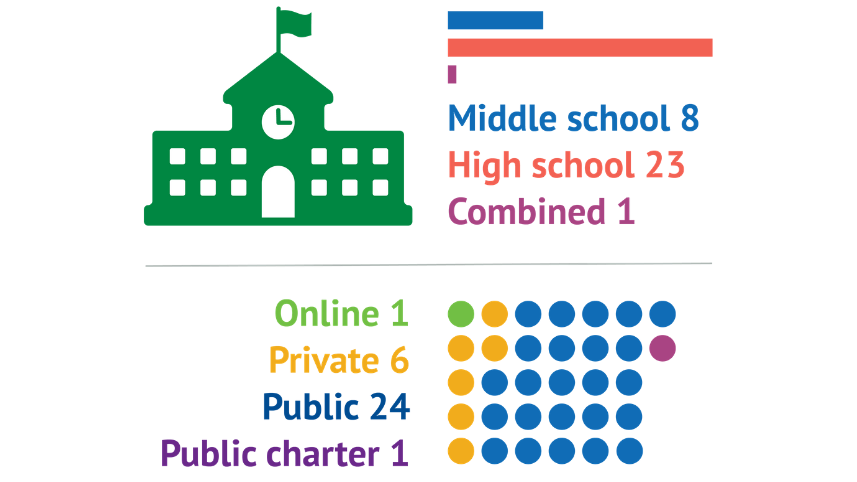
In the second year of the study, the cohort of teachers will have the opportunity to gather in person for professional development to review the revised lesson sets and deepen their understanding of teaching socially controversial topics in science. Teachers will then implement the revised NCSE lessons during the 2022–2023 school year, continuing to provide feedback on their experiences. The study will wrap up in June 2023, when cohort members will recount their two-year journey with school and district peers and administrators.
The ultimate goals of this study are to (1) develop and provide research-based lesson sets on socially controversial topics in science for schools and (2) expand and support a community of teachers who are equipped to recognize and address science misconceptions in their classrooms.
“We want NCSE to be the go-to place for evolution, climate change, and the nature of science professional development that helps teachers who struggle with these often contentious topics become confident and effective at helping their students overcome their misconceptions,” explains NCSE Executive Director Ann Reid. “The curriculum study is the first step in proving that our lessons are truly able to change teaching practices and learning outcomes.”
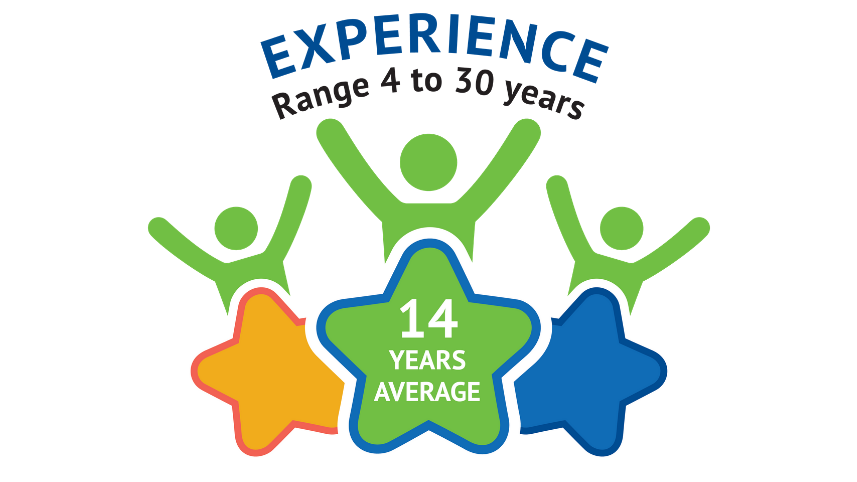
Meet a few of the NCSE Curriculum Study Field Testers
Reaching New and Experienced Teachers
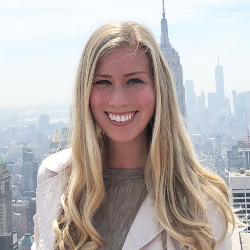 Chandler Missig, Year 4
Chandler Missig, Year 4
Frederick V. Pankow Center School
Clinton Township, Michigan
As a novice teacher with a back- ground in molecular biology, Missig says she struggles with teaching climate change and evolution. She is looking forward to diving into the NCSE study to expand her science pedagogy and engage her students in high-quality macrobiology experiences.
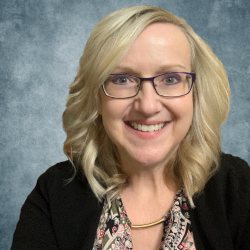 Dawn Fuelberth, Year 21
Dawn Fuelberth, Year 21
Skutt Catholic High School
Omaha, Nebraska
Fuelberth brings her previous experience as a molecular biology researcher studying gene therapy on Alzheimer’s disease to integrate high-level biotechnology into her classes. She is anticipating the exchange of information, research, and resources that participation in a nationwide curriculum study can provide.
Expanding the NCSE Map
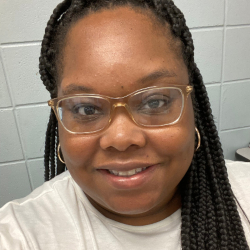 Shatavia Harris, Year 10
Shatavia Harris, Year 10
West Point High School, North Campus
West Point, Mississippi
In the Golden Triangle of northeast Mississippi, Harris describes evolution as an almost “forbidden topic” and climate change as often being overlooked or rushed through. Harris applied to participate in the NCSE study to find new ways to spark student interest and engagement in these topics.
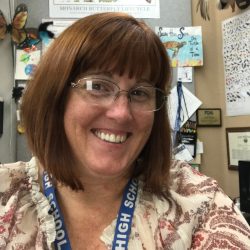 Robin Wilson, Year 7
Robin Wilson, Year 7
Emmett High School
Emmett, Idaho
Wilson describes teaching climate change and evolution in her rural, conservative community as a complex affair, leading to a superficial treatment of the science and inadequate retention of this critical information. Her goal is to learn how to teach socially controversial topics in science in a scientifically accurate yet non-conflictual manner that leads to deeper understanding and scientific literacy.
Taking a Team Approach
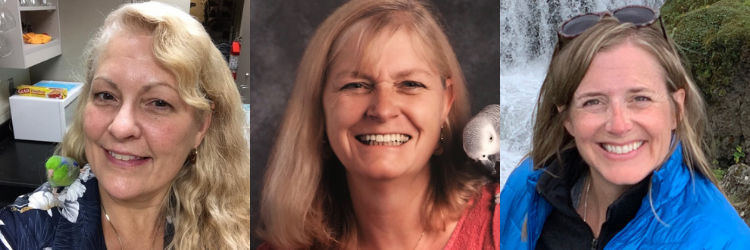
Century High School
Rochester, Minnesota
(from l. to r.) Janelle Milliken, Year 23, Cheryl Moertal, Year 27, Laura Underholzner, Year 23
This dynamic trio has teamed up at Century High School for the past 20 years. Now they are taking on the challenge to develop a new 9th-grade environmental science course. They chose to participate in the NCSE curriculum study to deepen their understanding of how to address misconceptions on the topic as well as to make connections with like-minded educators.
This article has been modified slightly from its original print version.

